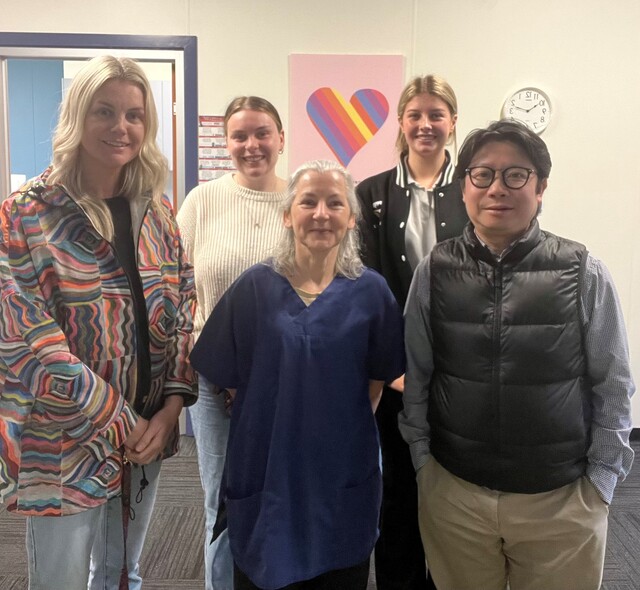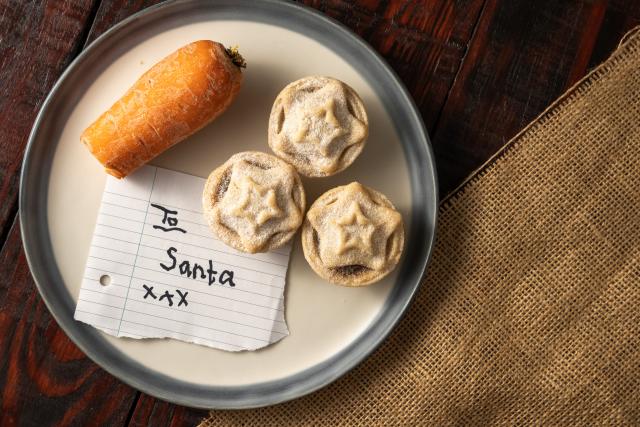Healesville High School (HHS) students have learnt being independent throughout the Doctors In Secondary School Program (DISSP).
It’s been seven years since HHS first introduced the DISSP with support from the State Government in 2017.
It’s a free medical service where the students can see a local GP and a local nurse from 9.30am to 1pm every Monday.
HHS student wellbeing director Hilda Ellis said the program provides not only easy accessibility for students to get medical support but also the opportunity to take ownership of their own health in a supportive environment.
“This new generation spent more time at home because of Covid, and they’re not as independent as the young people in previous years,” she said.
“So we’re trying to build that capacity back again and create awareness about the service so that the parents can encourage them to use the service as well.
“We have mental health social workers that come to the school to support students, and they charge them via a mental health care plan, so it’s really easy for the young person to get on a mental health care plan and then just see the counsellors.”
Every Wednesday, HHS runs a Breakfast Club making cheese and tomato toasties for the students, and DISSP is run on the last Wednesday of each term making egg and bacon rolls for the students.
Year 12 student Cole McMurray said all of her medical records since Year 7 have been made throughout the program.
“The doctors who come to my school can provide anything a GP can, and I seek support mental health wise, getting referrals for physical health things like ultrasounds and X-ray scans,” they said.
“They’ve also aided me in pursuing diagnoses for things like autism and ADHD, which is very much needed if you are a student struggling in a school.
“Because I’ve been seeing them since Year 7, they helped me every step of the way with that they’ve known me, they were able to make connections with how I was experiencing life.”
Cole lives independently from their family.
The DISSP has given easier medical service access to not only students like Cole but also students, who live in more regional areas where medical services are hard to get accessed.
“They [the doctors and the nurses] are available every week, and I don’t have to take any time out of school to do that, which can be inaccessible for some students, especially me,” Cole said.
“Honestly, I wish that every school would have a system like this.”
Get Well Clinic clinical director Khoi Bui is one of the doctors who has been involved in the program since its inception.
He said the DISSP is encouraging to be involved in the detection and management of health problems early on, which can prevent more complex or even life-long health issues from developing.
“Our aim is to make primary health care more accessible to students by bringing their clinic into the normal school context,” he said.
“This enables us to assist young people to identify and address any health issues early on and to help them take responsibility for their general well-being as part of their education, to shape healthy young adults.
“We also hope that this programme can reduce pressure on parents.”
The DISSP also provides healthcare checks that have been specially developed for a wide variety of different cohorts who present different profiles and needs including Aboriginal and Torres Strait Islanders, refugees, Asthma sufferers, students with eating disorders and mental health issues.
Dr Bui said the two years of lockdowns set back the students and the program’s momentum fizzled out markedly.
“Prior to Covid, we had built up a robust healthcare culture at the school, with students and parents and staff all involved in multiple aspects of healthcare education and management,” he said.
“Since school re-opened for attendance, we’ve had to re-start the programme from almost a zero-base, as well as address many of the healthcare issues that arose when students were locked down and unable to participate in their usual activities.”
Over the last seven years of involvement, Dr Bui has noticed every year presents a new challenge as a new cohort of students, who are unaware of their school clinic, commence.
“The team always feels rewarded when we progressively build relationships with the students, and see their developing consciousness about fundamental health self-care taking them through school and on to enjoy healthier lives,” he said.
“We’ve even seen some move into careers in healthcare delivery.
“The program involves our clinical staff in an ongoing series of webinars and workshops run by the University of Melbourne, where leading experts update us on emergent healthcare issues and treatment strategies, so we are all continually evolving in what we do and how we do it.”
Another Year 12 student Lala Warner got recommended by her friends to try the DISSP.
Lara said having her friends and getting relationships with doctors through activities like Wednesday Breakfast Club helped her to feel more comfortable to take a step toward being independent.
“Instead of mum making appointments and driving me to Get Well Clinic in school or after school, I can just come here in one of my spares, not missing class,” she said.
“I can come down and make appointments by myself, I don’t have to ask my mum about everything and can make my own decisions.”







